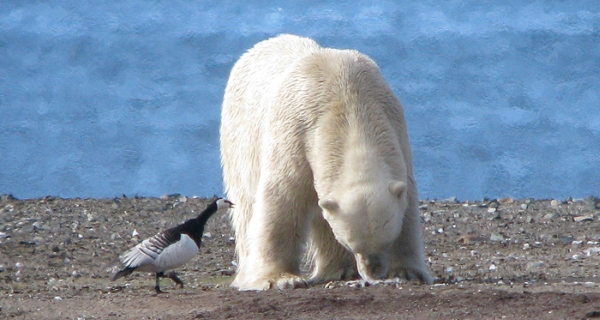Wild geese change routes to cope with climate change
Barnacle geese are choosing new feeding sites to cope with climate change, according to Scottish researchers. A team from St Andrews University, along with Norwegian, Dutch and British colleagues, found that the birds were flying further north in the Arctic. The study is one of the first to provide hard evidence that wild animals are inventing new ways to cope with changing habitats. The findings are based on 45 years of observations by experts. The teams found that the migratory birds, which traditionally fuelled up, or staged, just South of the Arctic circle in Norway now mainly staged in northern Norway far above the Arctic circle.
Jouke Prop, associated member of the Arctic Centre is not only co-author of this article, he has been essential in collecting the goose data for this article. For almost 40 years he is every summer on Nordenskjöldkysten, Spitsbergen to work on his long-term data collection.
The research has been published in the journal Global Change Biology.

| Last modified: | 07 September 2019 5.11 p.m. |
More news
-
16 April 2024
UG signs Barcelona Declaration on Open Research Information
In a significant stride toward advancing responsible research assessment and open science, the University of Groningen has officially signed the Barcelona Declaration on Open Research Information.
-
02 April 2024
Flying on wood dust
Every two weeks, UG Makers puts the spotlight on a researcher who has created something tangible, ranging from homemade measuring equipment for academic research to small or larger products that can change our daily lives. That is how UG...
-
18 March 2024
VentureLab North helps researchers to develop succesful startups
It has happened to many researchers. While working, you suddenly ask yourself: would this not be incredibly useful for people outside of my own research discipline? There are many ways to share the results of your research. For example, think of a...
